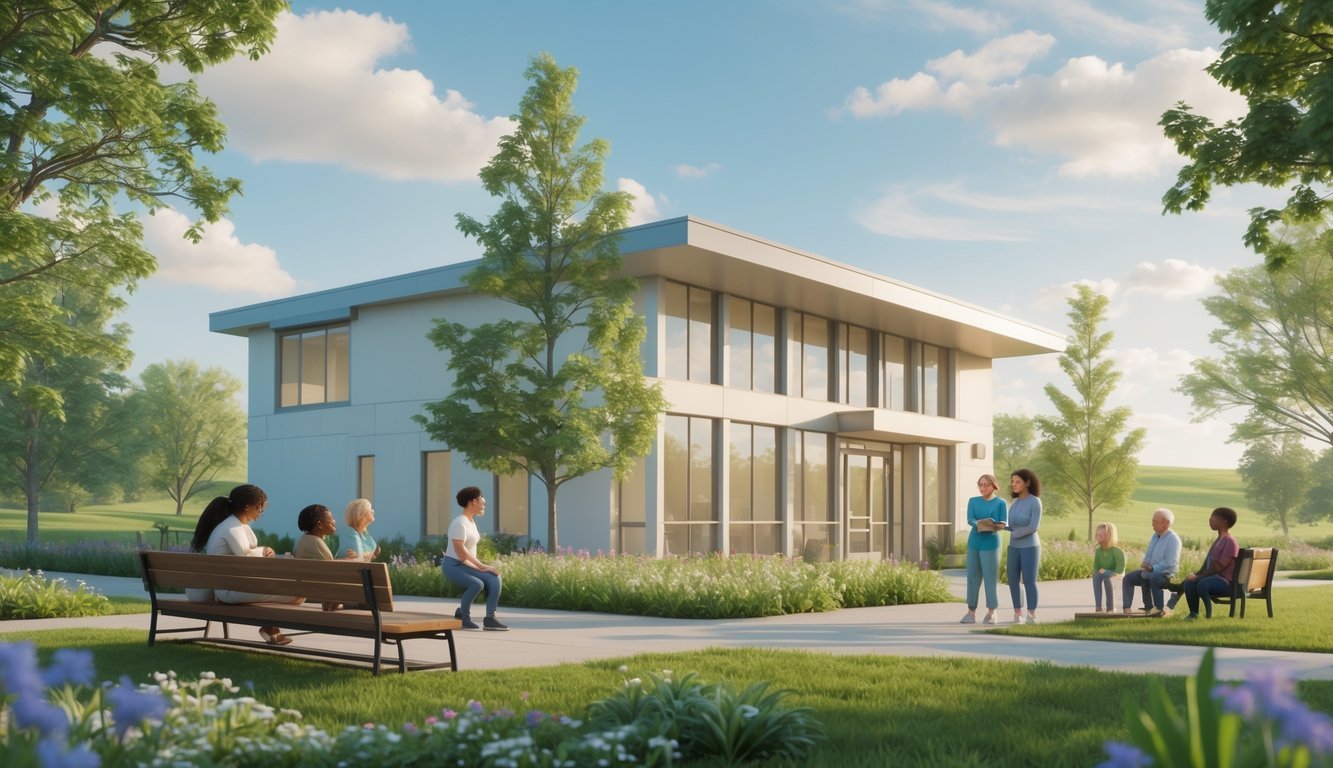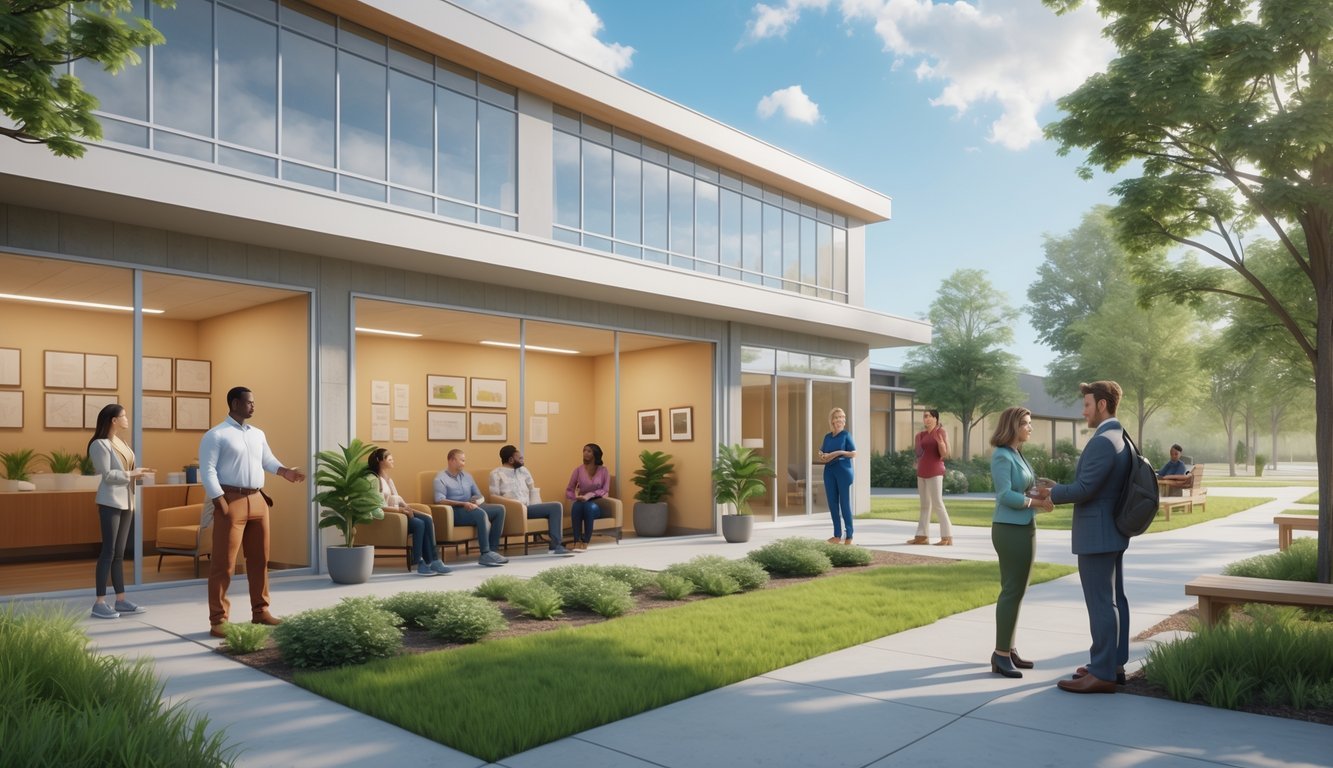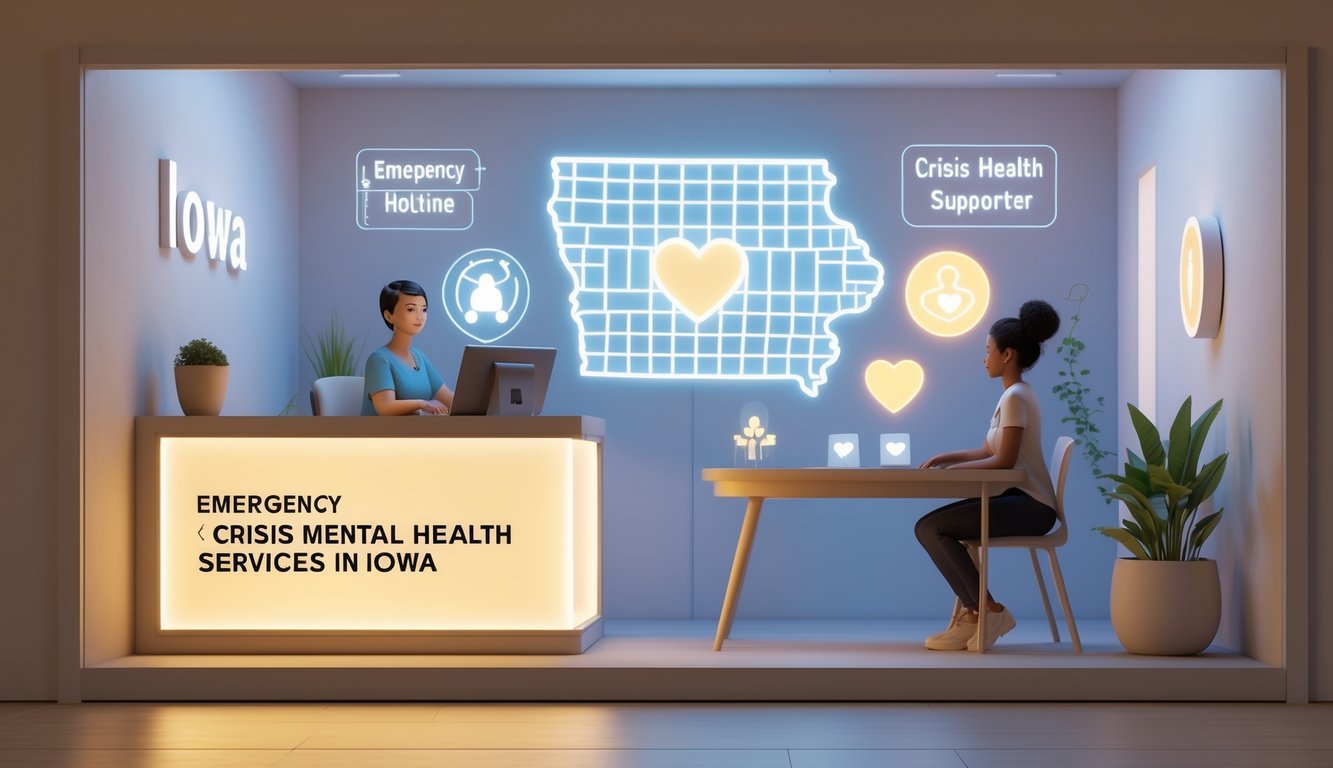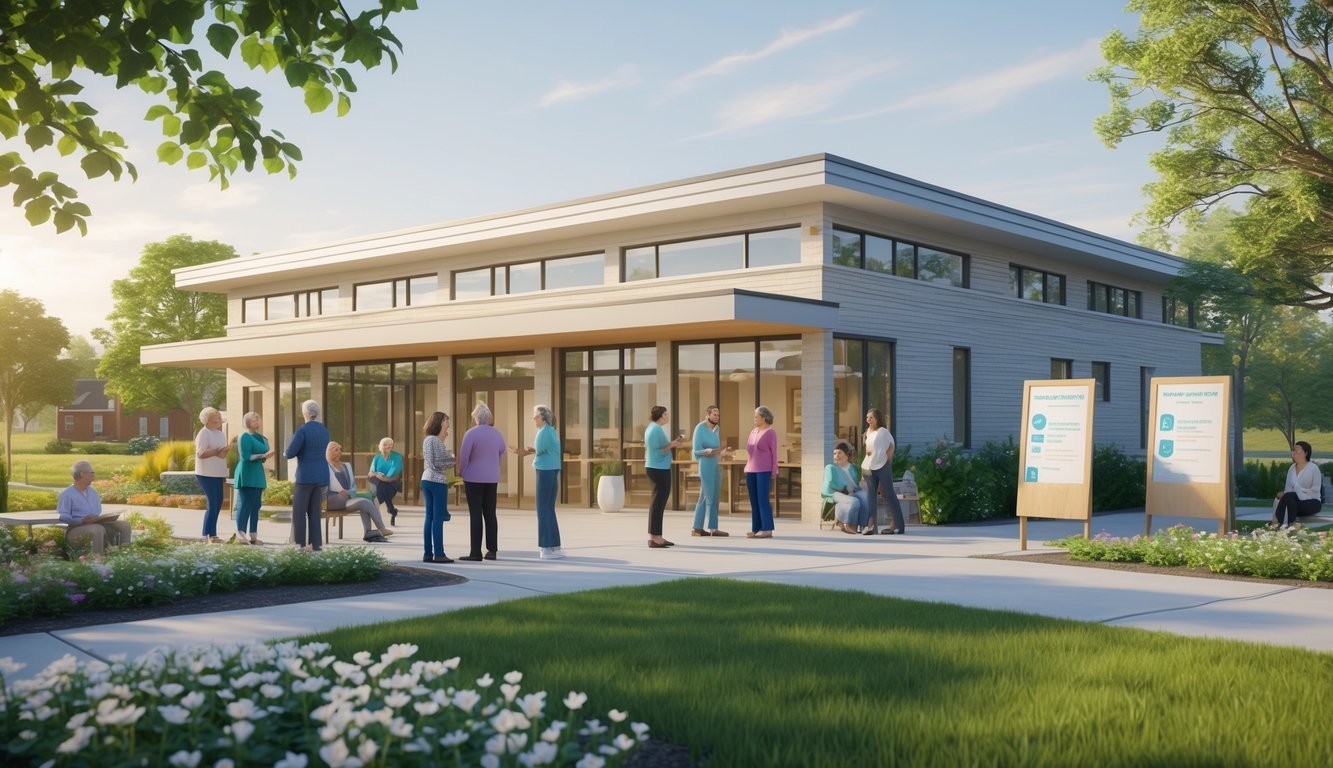PsychNewsDaily Publishers
100 Summit Drive
Burlington, MA, 01803
Telephone: (320) 349-2484
PsychNewsDaily Publishers
100 Summit Drive
Burlington, MA, 01803
Telephone: (320) 349-2484
Iowa offers affordable mental health care options including Medicaid, community programs, university services, and crisis hotlines for residents seeking support without financial barriers.

Looking for affordable mental health care in Iowa can feel like a lot, especially when you’re already not feeling your best. Thankfully, Iowa has free and low-cost mental health services that can help without draining your wallet.

Iowa has free mental health services through community programs, crisis intervention resources, university counseling centers, and state-funded initiatives. You can find everything from immediate crisis support to ongoing counseling and therapy programs designed to help you manage mental health challenges.
Knowing what’s out there and how to reach these resources can be the difference between struggling alone and finally getting help. If you need emergency support or longer-term therapy, Iowa has set up several ways to connect you with qualified mental health professionals for free.

Iowa has a few ways for residents to get mental health care at no cost. Medicaid, community programs, and student services all help make sure money isn’t a barrier to getting support.
Medicaid Coverage: Iowa Medicaid provides mental health services if you meet certain income requirements. You need to qualify based on your income and a few other criteria.
Student Services: Students at Iowa universities get free mental health care. The University of Iowa Student Health offers psychiatric care with MD psychiatrists and primary care doctors.
Iowa State University offers counseling services to support student goals, both educational and personal. You can get clinical care, crisis help, and outreach programs.
Crisis Support: If you’re stressed from storms or other emergencies, you can call Iowa Concern’s 24/7 support hotline at 800-447-1985. All Iowans can use this free, confidential service.
Clinical Services: Student health centers offer:
Community-Based Programs: Habilitation Services help Iowans with long-term mental health needs live on their own. This program, running since 2007, focuses on building daily living and social skills.
Integrated Health Homes: Integrated Health Home programs coordinate care for adults with serious mental illness and kids with serious emotional issues. Teams include family and peer support.
Specialized Programs: Iowa is working on Certified Community Behavioral Health Clinics using federal funds to expand community mental health services.
Home and Community-Based Services: HCBS programs offer medical and social support for people with functional, cognitive, or mental health needs. These services help you stay at home and avoid institutional care.
Emergency Support: You can get crisis support even if you don’t have insurance. Iowa Concern gives immediate phone support for stress and mental health issues without checking insurance.
Educational Institution Access: College students in Iowa get mental health services as part of their enrollment. You don’t need separate insurance to use these programs.
Grant-Funded Programs: Federal and state grants fund mental health projects that offer free or reduced-cost services to eligible residents.

Iowa has several crisis intervention services that offer immediate help during mental health emergencies. The 988 Suicide & Crisis Lifeline and Your Life Iowa both give 24/7 support to people facing suicidal thoughts or emotional crises.
The 988 Suicide & Crisis Lifeline is a free, national service that’s always open. You can call, text, or chat with trained counselors for quick emotional support.
How to Access:
When you reach out, you’ll connect with local crisis centers in Iowa. Counselors know your community and its resources.
Crisis counselors listen and help you stay safe. They don’t judge or try to fix everything right away, but they do help you find ways to get through tough moments.
Your Life Iowa offers free, confidential support 24/7. They connect you to mental health resources across the state.
Services Include:
Your Life Iowa counselors handle all kinds of mental health crises. They can help during suicidal situations and connect you to local treatment.
Anyone can use this service, no insurance or appointment needed.
Iowa has several crisis centers that give immediate support. These centers offer counseling and connect you with local services.
Types of Support:
Many centers also follow up after your first call. They help you find ongoing therapy and support groups nearby.
UI Health Care offers crisis help, including 24-hour support by call, text, or chat. They also help with emergency financial support and groceries during tough times.
Crisis counselors focus on your safety during suicidal moments. They help you come up with coping strategies and safety plans.
What Crisis Counselors Do:
They’re not there for long-term therapy, but they make sure you get through the crisis and find more help if needed.
If you’re struggling with suicidal thoughts, crisis counselors can help you find reasons to keep going. They work with you to figure out what support and coping methods fit your life.

Iowa communities have no-cost mental health resources through local clinics, regional programs, and peer support groups. These services connect you to licensed professionals and trained volunteers for crisis help, ongoing counseling, and community support.
The Free Medical Clinic in Iowa City gives mental health care at no cost for people without insurance. You can meet with licensed therapists and get psychiatric evaluations.
The clinic uses a sliding fee scale based on income, but most services are totally free if you qualify.
Staff includes:
Call ahead to make an appointment. Walk-in crisis services are available during business hours, Monday through Friday.
Community Health Centers in Iowa City also offer free mental health screenings. Nurse practitioners there can do initial assessments and refer you for ongoing care.
Iowa’s regional mental health system covers all 99 counties with free services. Each region runs mental health centers offering crisis help and ongoing treatment.
Services include:
The Certified Community Behavioral Health Clinics program started in 2024 to make care more accessible. This program lets people get mental and behavioral health services in one spot.
Regional centers have physician assistants and nurse practitioners who focus on mental health. You can use these services even if you don’t have insurance or can’t pay.
Contact your regional center directly to schedule. Most centers offer same-day appointments for urgent needs.
Peer support programs let you talk to trained volunteers who’ve been through mental health challenges themselves. These aren’t run by hospitals or clinics.
NAMI Iowa runs peer support groups in most counties. Their group leaders are volunteers who know mental health first aid.
You can join groups for depression, anxiety, bipolar disorder, and more. Meetings happen weekly or monthly, depending on where you live.
Warm lines offer non-crisis phone support if you just need someone to talk to. Peer specialists, not therapists, staff these lines.
Why peer support helps:
Local groups bring mental health services to underserved areas. Mobile crisis teams respond to emergencies in rural places, so you don’t have to travel far.
Faith-based counseling programs exist in many Iowa towns. Churches and religious groups often give free counseling with licensed professionals.
School districts sometimes offer mental health services to families, not just students. Many have social workers and counselors for parents and community members, too.
The HOME project aims to make sure everyone in Iowa can get behavioral health care close to home. They focus on keeping people near their families and support systems.
Community health fairs offer free mental health screenings and referrals. Nurse practitioners and physician assistants volunteer at these events to give assessments and connect you with more care.
Getting mental health help in Iowa starts with knowing what’s out there and how to reach it. Most services let you connect by phone, text, or online chat.
Your situation decides what kind of help you need. If you’re having suicidal thoughts or a major crisis, call or text 988 any time.
For non-emergency support, Your Life Iowa has a free statewide crisis line with info and referrals. They’ll point you to local resources.
Crisis vs. Non-Crisis Services:
A lot of counties have their own mental health access centers. For example, Linn County’s Mental Health Access Center helps adults with mental health or substance use problems.
College students can use campus resources. University of Iowa students can find mental health resources through Well-Being at Iowa.
Most crisis services in Iowa run 24/7. The 988 Suicide & Crisis Lifeline is always open with trained counselors.
24/7 Services:
Non-crisis services usually have regular business hours. Call ahead to make appointments with local providers.
Some colleges offer fast access to counseling. Iowa Lakes Community College gives up to six free counseling sessions by phone or video.
Iowa mental health services help residents with different language needs and disabilities. The 988 network supports people who are deaf or hard of hearing, including veterans.
Language Support Available:
If you need hearing accessibility, you can reach out to Relay Iowa TTY services. This service lets people who are deaf, hard of hearing, or have trouble speaking get mental health support.
You’ll also find mental health peer drop-in centers in some counties like Muscatine. These centers offer face-to-face support for folks who’d rather talk to someone in person.